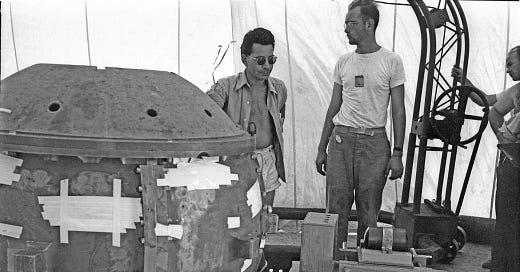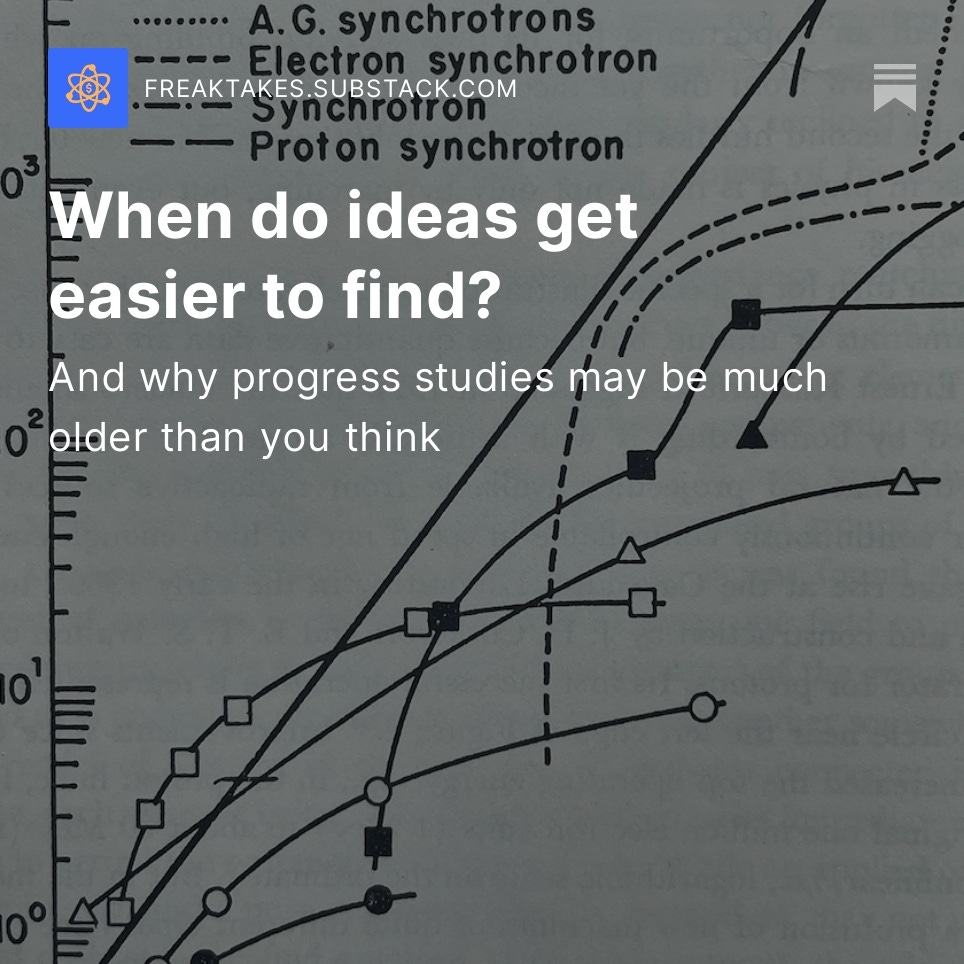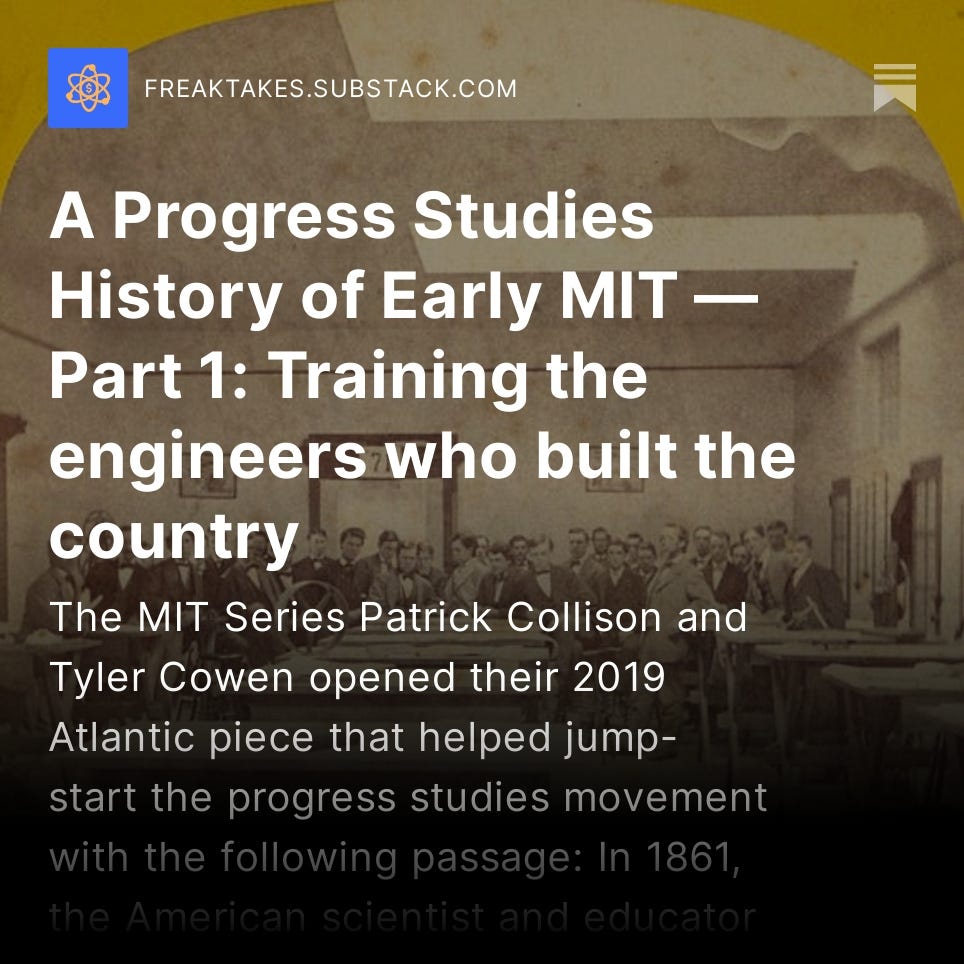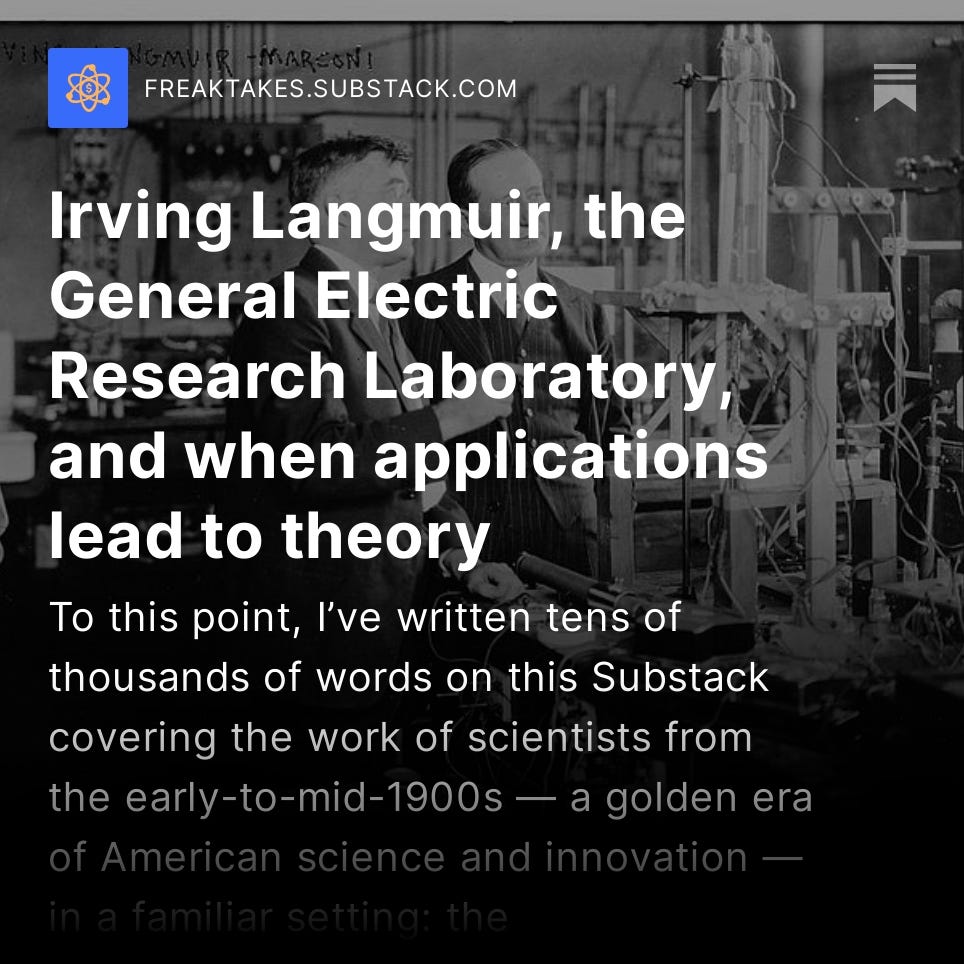I’ve finally updated the “About” section of this Substack. For months and months, I put it off because I was so busy working a job and writing at night. Then, I began writing full-time and concerned myself wholly with making sure I kept up producing novel pieces as a “professional.”
Today, I finally got to it. And I realized this was the perfect opportunity to do something I’ve never done: a subscriber push. Most of you have found the Substack through word-of-mouth, which has been great! I have no Twitter following to speak of (I think only like 200 of you follow me on there at most), but you found your way here anyway!
The only thing that I’ve found helps this Substack grow is you all liking what I write and sharing it. I’m trying to continue to do my part as we speak and working on a great piece (with Stuart Buck) on the golden-era of molecular bio.
In the meantime, it would be great if you could help me out! I’ve pasted my updated “About” section below! If there’s anyone you know who you’ve been meaning to send my Substack to/that you think would get a kick out of it, today is as good a day as any to send it over to them!
What is Freaktakes about?
Helping builders in the metascience/progress studies space discover exciting, new ways forward.
For years, my hobby was reading about the lives of a great era of scientists, innovators, and builders (from about 1880-1965). Eventually, since I have always done economics-adjacent work, I began to immerse in the economics of innovation literature to understand some of the dynamics I was reading about. Most of the data in the literature is from around 1970 and onward. Some of it really helped explain what I was seeing in the older work; some of it clearly demonstrated that the era or two I was reading about was MUCH different than the one represented in most of the data.
I started writing this newsletter to better explore that dynamic. Because, if I was starting a new science org, I’d most heavily utilize the economics of innovation literature, but I’d also want to understand the extreme limitations of it. The limitations are mainly a function of the later 1900s ushering in the more modern (and bureaucratic) era of the scientific ecosystem that we know today. And that system has proven to help us do a lot of things well — for example, science is much more lavishly funded now, but it also changed a lot of things. The types of visions many new science funders describe are scrappy, moonshot-driven, decentralized, and weird. And if you’re looking for detailed examples of that, the mid-1900s is a much richer source of evidence than the back half of the 20th century.
But both sources of evidence should be heavily drawn upon. And, when you do that, you can uncover enlightening ways forward for new science initiatives.
So please subscribe to learn all about what the 1880-1965-ish history of innovation can teach us about how to build an exciting new science organization in the present day. (I think) This Substack is the perfect accompaniment to Matt Clancy’s New Things Under the Sun which does a world-class job of walking readers through what we do and don’t know about innovation using the economics of innovation literature.
Enjoy:)
Thanks so much!
I started the Substack with four piece ideas written on a white board and some free time. I’d start there and see where it went. Less than a year in, I’ve written almost twenty pieces, am working on several more, and have a list of at least a dozen more to start “at some point.”
And more importantly, I love it. I’d do this for free…I did do it for free for a while. FreakTakes isn’t going anywhere!
Thanks so much for your time and curiosity. It’s been life-changing for me. And, more importantly, it gives me hope for the future of the scientific ecosystem. You come here because you are curious about new ways forward and to learn more about what we did well in the past.
With genuine curiosity and the desire to constantly improve, so many things are possible. It’s one of those special things that makes humanity great. It’s what draws people to progress studies in the first place. This Substack tries to remind its readers of how far this approach can take us in every piece. But, every time a new reader tunes in, the reader reminds the author of just how many people are motivated to continue this tradition. (I still receive an email every single time one of you subscribes. I’m not sure I’ll ever turn that notification off. It’s an injection of motivation for me every time it pops up.)
Looking forward to continuing to serve your curiosity. Please enjoy:)
And if you’re receiving this email because your friend just recommended FreakTakes to you now, the following are some of the “best hits” of the Substack.








Long live the newly-defined FreakTakes!
Long live the newly-defined FreakTakes!